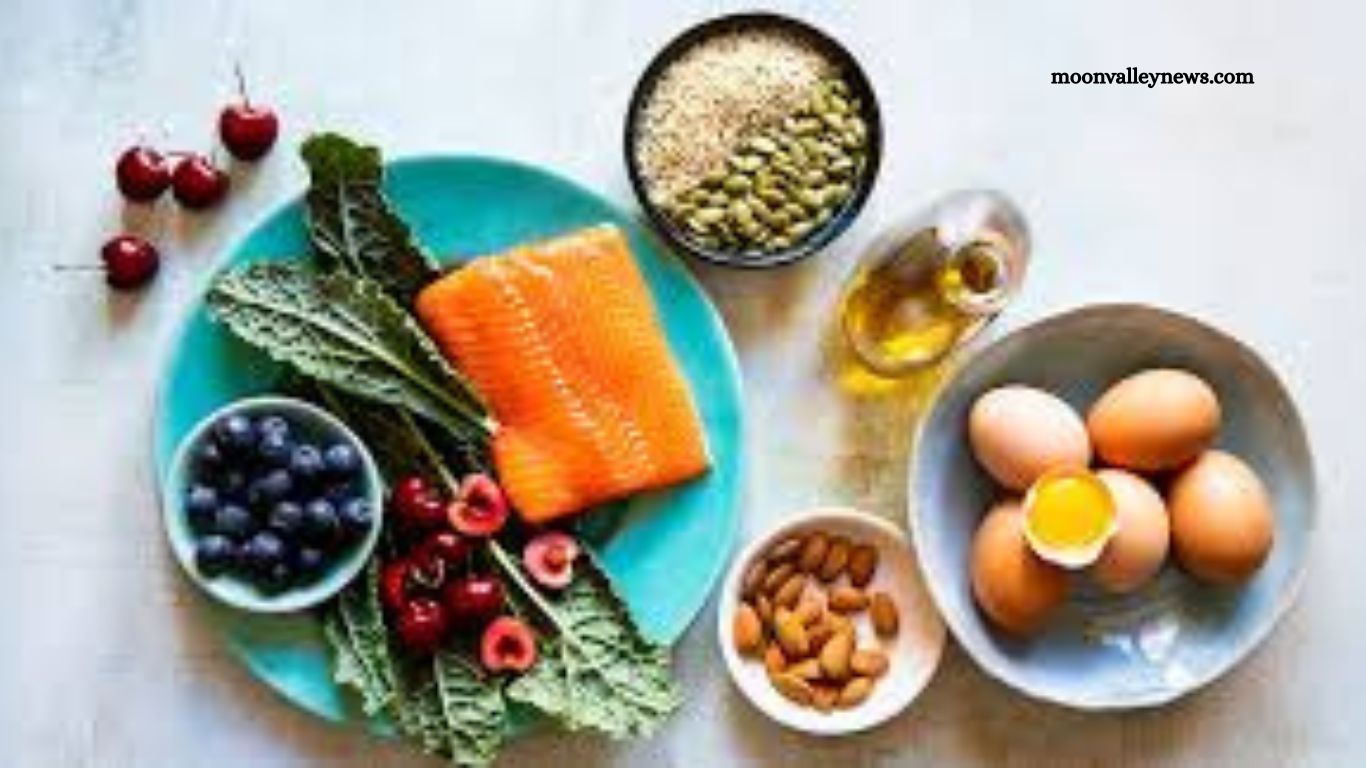Your fingernails can reveal more about your health than you might think. Nails grow from constantly regenerating tissue, and their strength and appearance rely heavily on adequate intake of vitamins, minerals, and other essential nutrients. While many over-the-counter supplements claim to promote stronger nails, scientific support is limited biotin is currently the only supplement with some evidence of benefit.
The best approach is to prioritize a balanced diet rich in the nutrients your nails need. Ho7 Essential Nutrients for Healthy, Strong Nailswever, if your diet falls short, supplements can help fill the gap and support healthy nail growth. Below are the key vitamins and nutrients that play a vital role in keeping your nails strong, smooth, and healthy.
Read More: Emergence of a New AI Superpower
Biotin
Biotin, also known as vitamin B7, coenzyme R, or vitamin H, is a B-complex vitamin that supports healthy cell growth and helps metabolize protein-building amino acids essential for nail growth.
Biotin-rich foods and supplements may help strengthen brittle nails. A few small studies suggest biotin supplementation can improve nail strength. For example, a 1993 study of 35 participants with brittle nails found that taking 2.5 mg of biotin daily for six weeks to seven months improved nail health in 63% of participants.
Biotin deficiency is rare. While there’s no official RDA, the Adequate Intake (AI) for adults is 30 micrograms (mcg) per day. Biotin is concentrated in organ meats like liver, and can also be found in:
- Egg yolks
- Dairy
- Yeast
- Salmon
- Avocado
- Sweet potato
- Nuts
- Seeds
- Cauliflower
Other B Vitamins
Vitamin B12 is essential for iron absorption and red blood cell production—both crucial for strong, healthy nails. A B12 deficiency can cause nails to appear blue, develop wavy dark streaks, or show brownish pigmentation.
Folate (vitamin B9) also supports nail health by aiding in red blood cell formation and the development of new cells. A deficiency in folate can make nails rigid, brittle, and prone to discoloration.
To prevent deficiencies, adults need about 2.4 mcg of vitamin B12 and 400 mcg of folate per day, with higher folate requirements during pregnancy.
Sources of these vitamins include:
- Folate: dark green vegetables, citrus fruits, beans, peas, nuts, seeds, avocado
- Vitamin B12: meat, poultry, fish, eggs, dairy, and fortified foods
Iron
Iron is a key component of red blood cells, which carry oxygen to every cell in your body—including your nails. Without enough iron, your cells may not get sufficient oxygen, which can affect nail growth and strength.
An iron deficiency or anemia can cause vertical ridges on the nails or make them concave, sometimes referred to as “spooned” nails.
Iron needs vary by age, sex, and hormonal factors, but most adults require at least 8 mg per day. Iron from animal sources—such as beef, chicken, fish, and eggs—is absorbed more efficiently than iron from plant sources like dark leafy greens, beans, seeds, and peanuts. Pairing plant-based iron foods with vitamin C-rich foods, like oranges or strawberries, can improve absorption.
Magnesium
Magnesium is a mineral involved in over 300 processes in the body, including protein synthesis, which is essential for nail growth. Vertical ridges on nails can sometimes indicate a magnesium deficiency.
Magnesium needs vary by age and sex, with most adults requiring between 310 mg and 320 mg per day. Rich sources of magnesium include whole grains (especially whole wheat), dark green leafy vegetables, quinoa, almonds, cashews, peanuts, edamame, and black beans.
Protein
Nails are primarily made of keratin, a fibrous structural protein that provides strength, resilience, and protection. Although the visible nail is composed of dead cells, consuming adequate protein helps your body produce keratin and maintain strong, healthy nails.
The RDA for protein is 0.36 grams per pound (0.8 g per kg) of body weight daily, roughly 55 grams for a 150-lb (68-kg) person. The Acceptable Macronutrient Distribution Range (AMDR) allows protein to account for 10%–35% of total daily calories.
Protein-rich foods include meat, poultry, fish, eggs, dairy, soy, legumes, beans, nuts, seeds, and whole grains.
Vitamin C
Vitamin C is crucial for collagen production, a protein that supports the structure, strength, and integrity of nails, hair, and skin. A deficiency can lead to brittle nails and slow nail growth.
The body cannot produce vitamin C, so it must come from food. Adults typically need 65–120 mg per day, depending on age and sex. While citrus fruits are well-known sources, bell peppers, green vegetables, and tomatoes are also rich in vitamin C.
Zinc
Zinc is essential for numerous processes in the body, including the growth and division of cells. Nails are made of cells that grow rapidly, so a steady supply of zinc is necessary to support healthy nail growth.
A zinc deficiency can lead to degeneration of the nail plate, often causing white spots or weak nails. Adults generally need 8–13 mg of zinc per day.
Zinc-rich foods include:
- Beef
- Poultry
- Fish
- Eggs
- Soy
- Chickpeas
- Black beans
- Almonds
- Cashews
- Seeds
Frequently Asked Questions
Can supplements alone make my nails stronger?
Supplements can help if you have a deficiency, but getting nutrients from a balanced diet is more effective. Biotin supplements have some evidence for improving brittle nails, but most other nutrients work best when consumed through food.
How long does it take to see improvements in nail health?
Nails grow slowly, about 2–3 mm per month. Visible improvement from diet or supplements may take a few months, depending on the severity of deficiencies and individual growth rates.
Can weak nails indicate a health problem?
Yes. Brittle, ridged, or discolored nails can signal deficiencies in nutrients like iron, zinc, or B vitamins, or underlying health conditions. Persistent changes should be evaluated by a healthcare professional.
Are there foods that specifically prevent brittle nails?
Foods rich in protein, biotin, zinc, iron, magnesium, and vitamins B12, B9, and C help strengthen nails. Examples include eggs, nuts, leafy greens, citrus fruits, and lean meats.
Is it possible to have too much of these nutrients?
Yes. Excessive intake of certain nutrients, especially through supplements, can be harmful. Always follow recommended guidelines and consult a healthcare provider before high-dose supplementation.
Conclusion
Strong, healthy nails reflect not only good grooming habits but also proper nutrition. Ensuring you get enough biotin, other B vitamins, iron, magnesium, protein, vitamin C, and zinc supports nail growth, strength, and overall appearance. While supplements can help fill gaps when dietary intake falls short, the most effective approach is a balanced diet rich in these nutrients. By paying attention to what you eat and addressing deficiencies early, you can keep your nails resilient, smooth, and healthy—one nutrient at a time.







